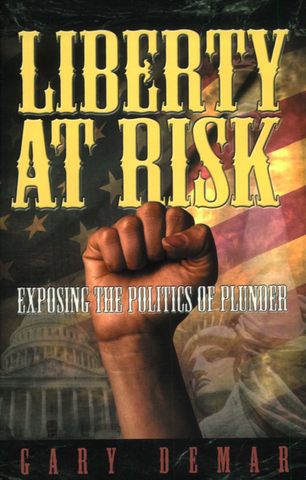Many in Jesus’ day saw the kingdom of God in externals only. They visualized the kingdom of God as coming, not through regeneration, but through social revolution. Jesus said of His followers: “Truly, truly, I say to you, you seek Me, not because you saw signs, but because you ate of the loaves, and were filled” (John 6:26). It was Jesus’ message about mankind’s need for salvation and about Him as the Savior, the Messiah of God, that caused the religious and political establishments of the day to seek His death.
The kingdom of God never advances through political intrigue, backed by military power. Though power-directed, its power comes from above and works on and in the heart of man: “I will give you a new heart and put a new spirit within you; and I will remove the heart of stone from your flesh and give you a heart of flesh. And I will put My Spirit within you and cause you to walk in My statutes, and you will be careful to observe My ordinances” (Ezek. 36:26-27). Self-government, wherein God subdues the heart to teachableness, leads to godly family, church, and civil governments (cf. 1 Tim. 1:8-11).
Mankind images God. God is the Governor over all creation; He has called us to be governors under His one government. The civil sphere is an area of legitimate governmental activity. Politics is “dirty” when men and women break God’s law. So is every other area of human responsibility: business, law, education, labor, sports, or whatever. Sin has affected every institution. This means that God’s law has called every institution into judgment.
The person who says that God’s law does not judge every area of life and every institution is saying that these institutions are immune from the effects of sin. But they are dirty because sinners are involved. Christians therefore must insist that the gospel of Jesus Christ can cleanse every institution from sin, because institutions are run by fallen people. God has given us a comprehensive gospel that offers comprehensive redemption.

Liberty at Risk
Without a proper understanding of civil government's biblical function and limited jurisdiction, Christians can be trapped into believing that civil government should promote policies beyond its designed purpose as long as they are for ‘the good of the people.’ This reasoning can lead many to choose security no matter what the cost to liberty.
Buy NowChristians should be involved in politics because it’s dirty. Who else has the means to clean it (or any other area of human activity)? If Christians do not, who will? Christians have stayed out of politics, making its corruption even more pronounced. The answer is not to consign politics to more corruption by ignoring it as an area for redemption and restoration.
On today’s podcast, Gary responds to recent articles by David French. These articles seem tactical on the surface, but reveal the deep problem of trying to play “nice” in political and policy discussions. Christians continue to fall for the “neutrality” idea, by allowing leftists to set the terms of political debate and practice.

